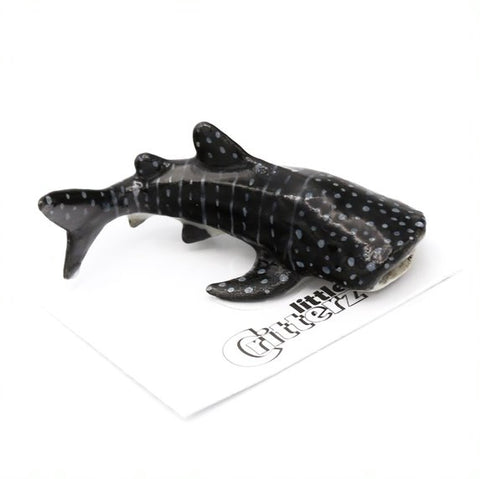
Whale Sharks - Mysterious Gentle Giants of the Ocean
Although called whale shark, this fantastic creature is a shark but is not a whale. The name comes from its enormous size. The adults are around the size of a school bus, which means they are as big as some whales, and they are the largest fish in the world - as well as being the biggest living nonmammalian creature on the planet.

What do Whale Sharks eat?
Like baleen whales, the whale shark is a filter feeder, filtering up to a ton of plankton and krill through their gaping mouths per day. Although they have rows of tiny teeth, the only fish that whale sharks eat are tiny ones that get caught up along with the plankton.

So why do whale sharks have teeth? That is a question that researchers have yet to find an answer for.
How long do whale sharks live?
Whale sharks live a very long time. Once they have made it through the dangerous, early years where they are more vulnerable to predators, they can expect to live between 100 to 150 years.
But many whale sharks do not make it. The eggs of the whale shark hatch within the mother's body and she will then produce up to 300 live babies at a time. The babies are tiny in comparison to the adults of their species - only 16 to 24 inches long at birth. This small size in comparison to the adults, make them vulnerable to predators.
Whale sharks are not dangerous to humans and divers often find them docile and easy to approach. Even small fish like remoras, pilot fish, and juvenile golden trevallies can be seen “hitching a ride” on whale sharks’ skin, or even in their mouths!

However much of the life of these ancient creatures remains a mystery. They spend most of their lives in the open sea where it is harder to observe them. For example, no one has ever seen whale sharks mating and only one pregnant female has ever been caught and studied.
How many whale sharks are there?
What is known is that their numbers are declining. Unfortunately, they are a target of the commercial fishing industry. Other threats include ocean mining and human disturbance via shipping lanes or recreation.
Although exact numbers are not known, the number of sightings of whale sharks have been decreasing. In 2016, there was an estimated population of 7.100 whale sharks in the ocean and they were put on the endangered list.
Does Little Critterz have a whale shark?
Yes, indeed we do. Meet "Many Stars", our beautiful whale shark. The name is a translation of the Malagasey "Marokintana," after the constellation of markings on their backs.


Comments
Leave a comment